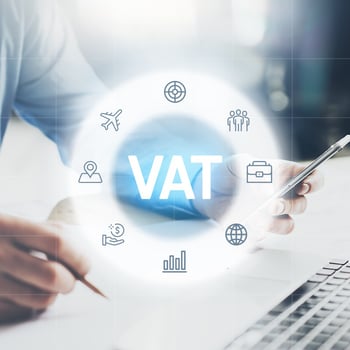
dcs plus’ TINA - already an industry standard solution - is one of the world’s most advanced web-based ERP systems for the travel industry. TINA aims to maximize office management and systems with an eye toward increasing efficiency and productivity.
The collection of bookings from all the selling channels, their streamlining into standardized, comprehensible, easy-to-control, ready-to-automatize workflows, is something that each travel agency must aim. The efficient collection of the incomes, effective control over the expenses and ability to monitor the business healthiness in real time, by flexible, instant reporting, combined with 15 years of experience with the knowledge gathered from hundreds of customers makes TINA a must have tool for every travel company.
Thus, TINA is ready to help GCC travel business and ease the VAT applying process by allowing you to:
All the above are performed by configuring the system according to your business needs, requirements and jurisdiction. The configuration process can be done continuously, so in case there are modifications like VAT percentage, the criteria on which a certain VAT is applied etc., we can help you through.
TINA allows you to mitigate the human error in calculating and performing VAT Statements and use only the needed information, thus making the entire process easier and allowing you to focus on growing your business.
The automatization of the entire process will gain your business time and money but will also make you adopt the new tax framework more rapidly and correctly.

In October 2016, representatives of each member state of the Gulf Cooperation Council (GCC) signed a VAT Framework Treaty which will come in force starting January 2018.
The treaty announces the mandatory introduction of VAT (Value Added Tax) in the GCC countries; the legislation being still in development as we speak and following to be published as soon as possible so all the aspects regarding the taxation could be known.
Businesses with operations in the GCC countries will be impacted by the introduction of VAT, which will represent a fundamental change to business operations in a region with little history of taxation. Potentially affected companies should begin preparations to ensure compliance with the VAT law by 2018 if they have not done so already.
The VAT Framework is expected to be no different from the one that’s already used in other parts of the world (European Union VAT taxation), but it will most definitely have its own particularities given the area’s potential, economic growth and culture towards taxes. Also, it is expected that the VAT system will know variations imposed by jurisdiction.
VAT (value added tax) is an indirect tax applied upon the consumption of most goods and services.
VAT is levied by VAT registered businesses which make supplies of goods and services in the course or furtherance of their business. VAT will also apply on the importation of goods
VAT registered businesses charge and add VAT to the value of goods and services they supply. Such businesses can also reclaim VAT incurred on goods and services acquired for business purposes (subject to some restrictions) such as the purchase of raw materials and other consumables used for the purposes of business.
The most important aspect that needs to be considered is the fact that the introduction of VAT, or any other tax for the matter, requires extra work which basically means: issuing invoices and certain tax declarations, calculations, qualified personnel that knows how to do the paperwork, but more importantly an automatic system that will support the human contribution through the entire process.
In most VAT jurisdictions, supplies of hospitality and leisure (H&L) are considered as taxable under VAT. As such, H&L suppliers are required to charge VAT on their supplies mostly at standard rate and they are entitled to deduct/recover VAT incurred on their expenses.
The H&L industry has evolved over the years, which is partly due to the technological advancements that allowed people to reserve online airline tickets, hotel rooms etc. However, this has made identifying the place where the services are performed and consumed, and the subsequent VAT treatment more complex.
The use of different percentage can be confusing, especially in a country that has never dealt with taxes and tax declarations, so to comply with the government’s requirements and the law in force, the travel agents or companies will need to adapt quite quickly, this leaving little, if not zero room for mistakes.
dcs plus is a registered trademark in the European Union.
Copyright 2024 dcs plus. All rights reserved.